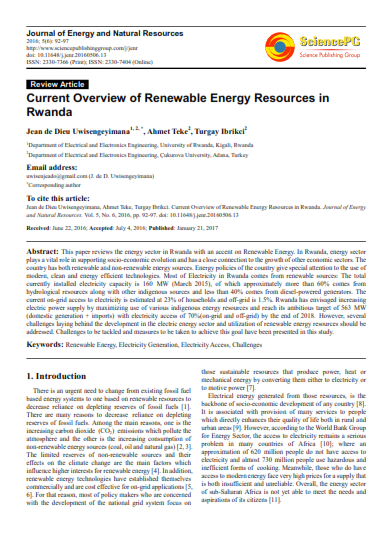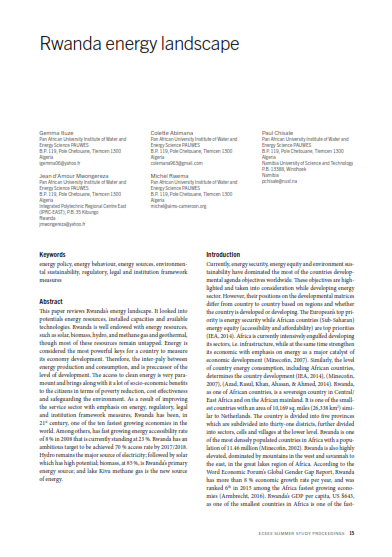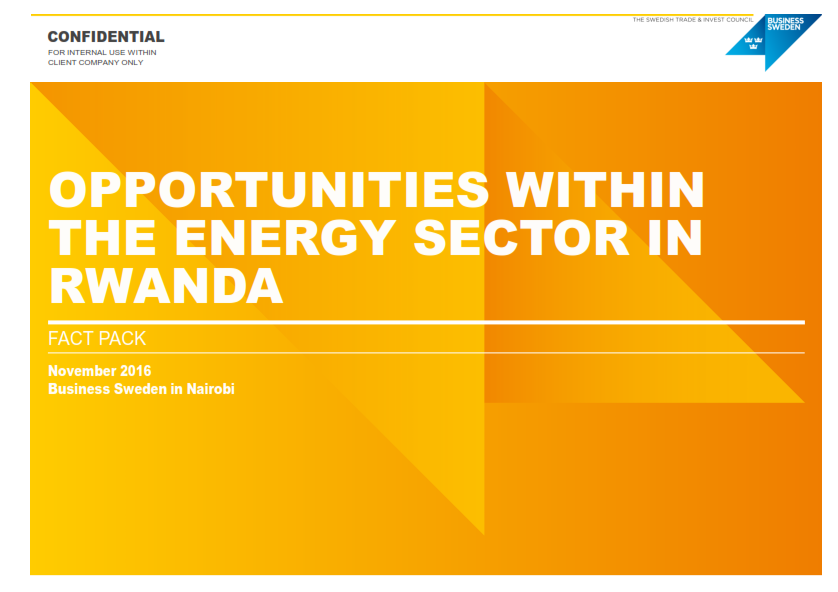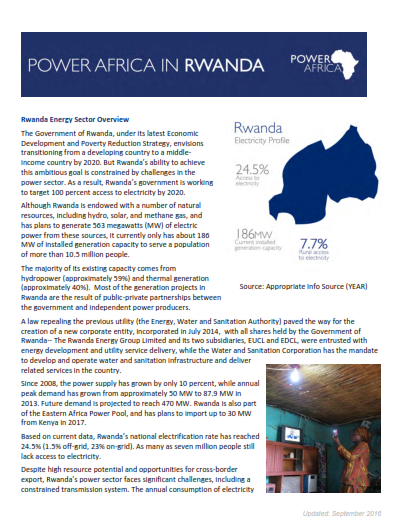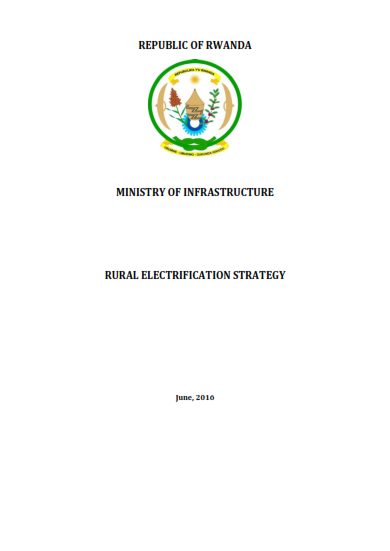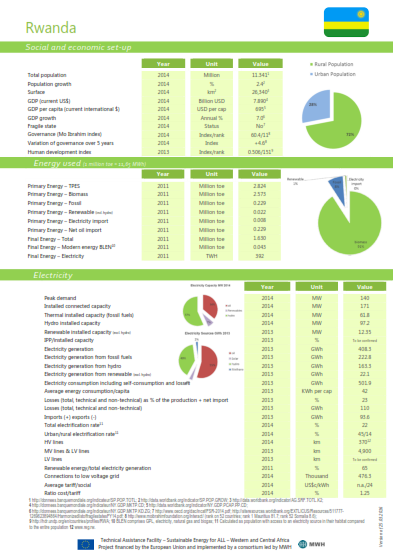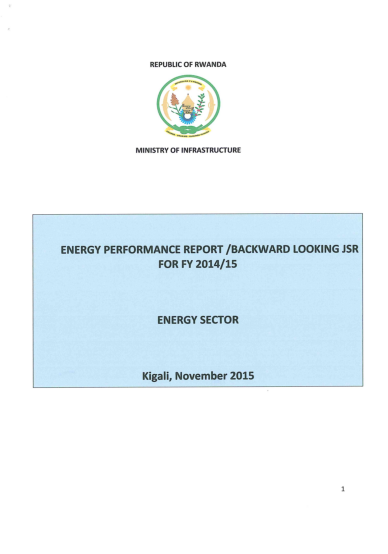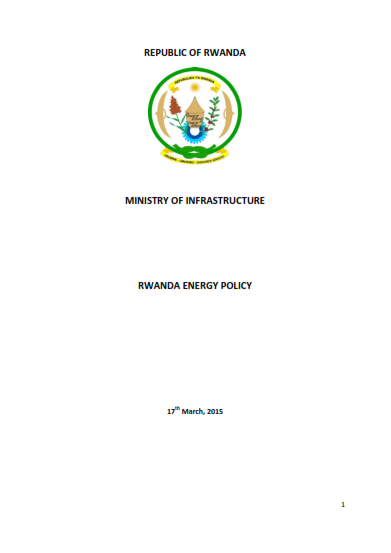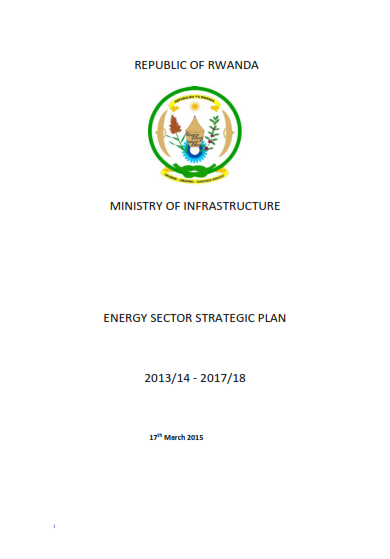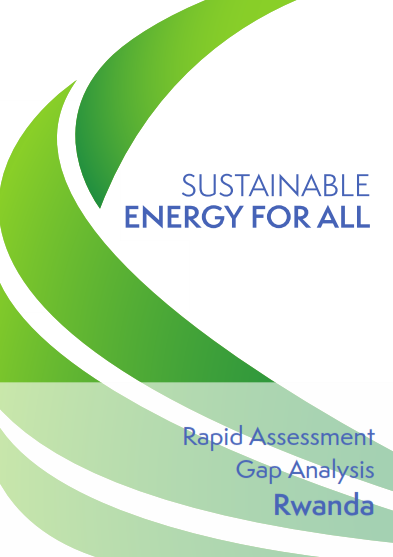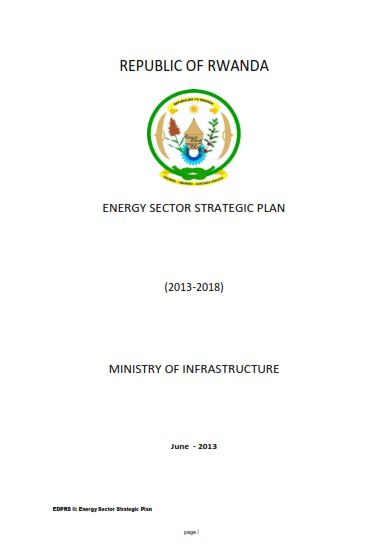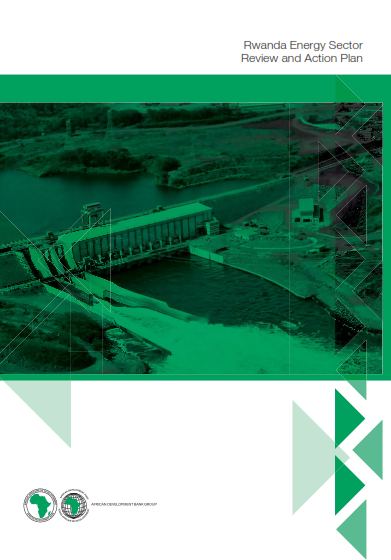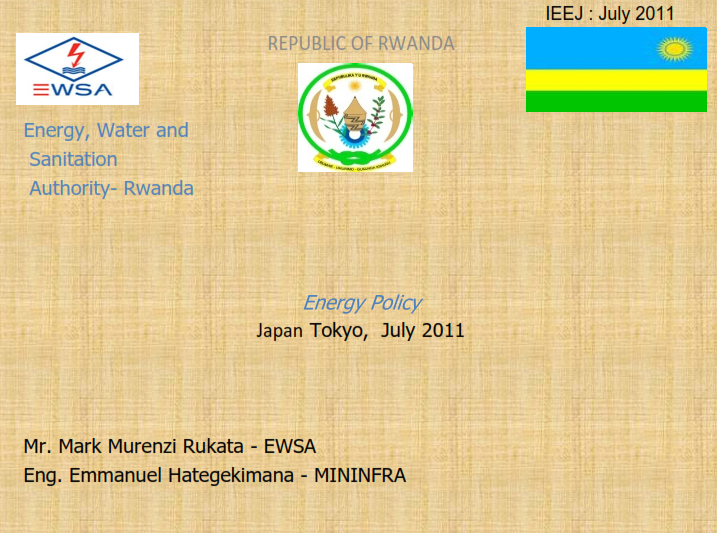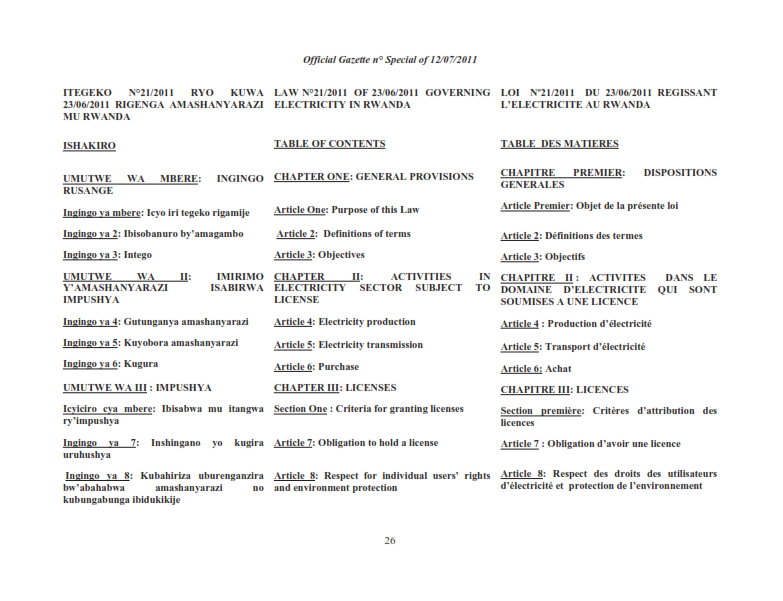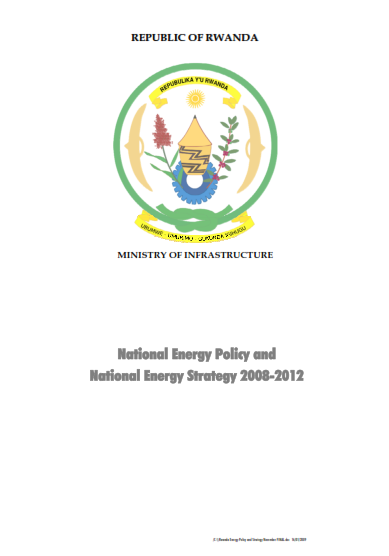We post here the relevant reports for the power sector in Rwanda. Feel free to join our efforts and share us any other you may have found. We'd be glad to add them to the list. Just send an email to This email address is being protected from spambots. You need JavaScript enabled to view it.
Publication date: 2017, January
Author: Science PG
Description: This paper reviews the energy sector in Rwanda with an accent on Renewable Energy. In Rwanda, energy sector plays a vital role in supporting socio-economic evolution and has a close connection to the growth of other economic sectors. The country has both renewable and non-renewable energy sources. Energy policies of the country give special attention to the use of modern, clean and energy efficient technologies.
Download Report >>
Visit Website >>
Publication date: 2017
Author: ECEEE
Description: This paper reviews Rwanda’s energy landscape. It looked into potentials energy resources, installed capacities and available technologies. Rwanda is well endowed with energy resources, such as solar, biomass, hydro, and methane gas and geothermal, though most of these resources remain untapped.
Download Report >>
Visit Website >>
Publication date: 2016, November
Author: Business Sweden
Description: Rwanda’s long term development goals are embedded in the strategic plan entitled Vision 2020, whose objective is to transform the economy into a knowledge based, service oriented economy with middle-income country status by 2020.
Download Report >>
Publication date: 2016, September
Author: Power Africa
Description: The Government of Rwanda, under its latest Economic Development and Poverty Reduction Strategy, envisions transitioning from a developing country to a middleincome country by 2020. But Rwanda’s ability to achieve this ambitious goal is constrained by challenges in the power sector. As a result, Rwanda’s government is working to target 100 percent access to electricity by 2020.
Download Report >>
Publication date: 2016, June
Author: MININFRA
Description: The Government of Rwanda recognises the vital role that electricity access plays in accelerating economic development through improving health and standards of living. Energy and particularly access to electricity is the Government’s key priority. This is why significant investments have been made and progress registered led to over 24% of households getting access to electricity. More efforts need to be made for the Government to achieve the set targets of 70% by 2017/18 and 100% by 2020.
Download Report >>
Publication date: 2016, March
Author: EU
Description: Rwanda Energy Profile
Download Report >>
Publication date: 2015, November
Author: MININFRA
Description: Access to safe, reliable and cost effective energy is essential to achieve thelevelsof growth defined under the Economic Development and Poverty Reduction Strategy (EDPRS II).
Download Report >>
Visit Website >>
Publication date: 2015, March
Author: MININFRA
Description: Since energy is a critical input to other key economic sectors, such as manufacturing, construction, mining and quarrying, agro-processing, transport, and tourism, a sound and comprehensive Rwanda energy policy is critical for economic growth.
Download Report >>
Publication date: 2015, March
Author: MININFRA
Description: The main objective of the Rwandan Energy Sector Strategic Plan (ESSP) is to ensure effective delivery of the set targets in the energy sector as set out under the EDPRS-II and to guide in the implementation of the National Energy Policy (EP).
Download Report >>
Publication date: 2014
Author: SE4ALL
Description: The energy sector is key to Rwanda’s economic development and poverty reduction goals. Electricity currently represents a small share of Rwanda’s overall energy consumption, but is set to expand rapidly over the next few years.
Download Report >>
Publication date: 2013, June
Author: MININFRA
Description: Access to safe, reliable and cost effective energy is essential if we are to achieve the ambitious levels of growth defined under the Economic Development and Poverty Reduction Strategy (EDPRS II). There is a strong correlation between a country’s energy usage and the level of development. The energy sector in Rwanda consists of three components: Electricity, Biomass and Petroleum, with each playing a key role in Rwanda’s transition to a middle income country by the end of the decade.
Download Report >>
Publication date: 2013
Author: AfDB
Description: This report is a product of the successful collaboration between the Ministry of Finance and Economic Planning; the Ministry of Infrastructure; Energy Sector Working Group and the African Development Bank Country Office in Rwanda and the East Africa Regional Resource Centre. This collaborative effort was led by a team comprising Edward Sennoga (Country Economist and Task Team Leader), Ephrem Rutaboba (Water and Sanitation Specialist), Daniel Lekoetje (Public Utilities Economist), Kader Hassane (Investment Officer) and Mr. Hossein Razavi (consultant). Mr. Negatu Makonnen (Resident Representative, RWFO) provided overall guidance and the team also benefi tted from the general direction provided by Mr. Gabriel Negatu, (Director, EARC).
Download Report >>
Publication date: 2011, July
Author: WSA
Description: Presentation Outline:
- Country overview;
- Electricity subsector;
- EWSA overview;
- Demand forecast by 2017;
- Overall target by 2017;
- Internal and Regional Investment environment;
- Challenges and Recommendations.
Download Report >>
Publication date: 2011, July
Author: Rwanda Gov
Description: Law 21-2011: Electricity Law Rwanda
Download Report >>
Publication date: 2009, January
Author: MININFRA
Description: Rwanda has elaborated a number of planning documents to guide national development over different time horizons. The nation’s current priority socioeconomic goals form the basis of the Economic Development and Poverty Reduction Strategy (EDPRS) which covers the period 2008-2012 . The EDPRS is the medium term programmatic framework for achieving the country’s long term development aspirations as embodied in Rwanda Vision 2020, as well as the intermediate targets in the 2015 Millennium Development Goals (MDGs).
Download Report >>





